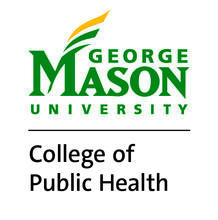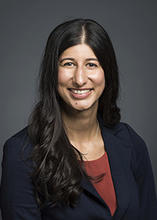Quick Links
Department of Health Administration and Policy
Admissions and Enrollment
HAP Academic Programs
Research and Faculty
Contact Us
Department of Health Administration and Policy
4400 University Drive, MS 1J3
Peterson Hall, Ste. 4400
Fairfax, VA 22030
(703) 993-1929
hap@gmu.edu
Our health policy and economics faculty collaborate with health insurers, hospitals, physicians groups, state and federal government agencies, and public health entities to conduct program and policy evaluations, cost-effectiveness studies, and outcomes research studies. Our team is nationally recognized with an active extramural funding portfolio.
Meet Our Faculty
- Priyanka Anand
- Alison Evans Cuellar
- John Cantiello
- Gilbert Gimm
- Debora Goldberg
- Jeah Jung
- Panagiota Kitsantas
- Hansoo Ko
Supporting Institutions
- Agency for Healthcare Research & Quality (AHRQ)
- American Institutes for Research
- CareFirst Blue Cross Blue Shield of Maryland
- Department of Veterans Affairs (VA)
- Fairfax County Department of Health
- Jeffress Trust
- MacArthur Foundation
- National Institutes of Health (NIH)
- National Institutes of Science and Technology (NIST)
- PNC Foundation
- The Robert Wood Johnson Foundation (RWJF)
- Virginia Department of Medical Assistance Services (DMAS)
- Westat Inc.
Current Research News Feed
- April 10, 2023Secret Weapon for Quit-Smoking Campaigns: Pets
- April 6, 2023An interprofessional Mason research team led by Associate Professor Hong Xue used machine learning and social media data in the first large-scale study to analyze factors that influence effective antismoking campaigns and user engagement.
- March 15, 2023Leading health policy researcher to advance the research function in the College
- March 13, 2023Debora Goldberg, associate professor in Mason’s College of Public Health, leads the program made possible by a Health Resources and Services Administration cooperative agreement.
- March 13, 2023Debora Goldberg, associate professor in Mason’s College of Public Health, is a leading expert on resiliency and well-being in the health care workforce.
- February 27, 2023Alison Evans Cuellar, professor in the Department of Health Administration and Policy, was appointed to the Improving the Health and Wellbeing of Children and Youth through Health Care System Transformation committee.
- February 15, 2023Gilbert Gimm, associate professor in the Department of Health Administration and Policy, to serve as treasurer on the state public health association board.
- December 16, 2022A new study led by Associate Professor of Health Administration and Policy Gilbert Gimm found that the likelihood of past-month marijuana use among adults varies by type of disability and is higher in states with legalized medical marijuana.
- December 12, 2022Study: Paid family leave in California keeps women in jobs
- December 12, 2022Professor of Health Administration and Policy Alison Cuellar will lead the federal task force that reviews evidence and makes recommendations about how to improve public health.
- November 8, 2022Professor of Nursing Rebecca Sutter, along with faculty and students across colleges, will lead the creation of an interprofessional Learning Laboratory for Community Health.
- October 19, 2022George Mason Associate Professor of Health Administration and Policy discusses the importance of job-protected paid leave.










